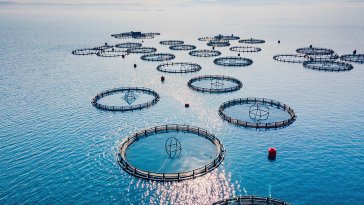
China reaction: CPI inflation improves but deflationary pressure remains
KEY POINTS
Deflationary pressure persists
China's Consumer Price Index (CPI) inflation improved to 0.5% year on year in July, up from 0.2% in June, which aligned with our expectations but exceeded market predictions of 0.3%. On a monthly basis, the headline CPI inflation reversed a two-month consecutive decline, rising by 0.5% in July from -0.2% in June. The improvement was largely driven by food prices, with pork prices up 20.4% and vegetable prices increasing by 10.7%, pulling overall food prices out of a 12-month deflationary streak to 0.0% from -2.1% in June.
Core CPI, excluding food and energy, edged down to 0.4% from 0.6% in June. Service CPI inflation also eased slightly to 0.6% in July, down from 0.7% in June. Discretionary consumption remained sluggish. Prices for automobiles continued their decline, recording -5.6% in July, marking the 25th consecutive month of decrease, while home appliance prices fell further to -1.8% from -1.3% in June.
While the July CPI inflation figures show some improvement, these gains are primarily due to temporary, supply-side factors such as extreme weather affecting food supplies and seasonal demand from summer travel. With persistent sluggish wage growth and continued declines in housing prices, the outlook for CPI inflation remains weak. We maintain our forecast for an annual CPI inflation average of 0.6% for 2024.
PPI deflation sustained but better than expected
China’s Producer Price Index (PPI) deflation remained steady at -0.8% year on year in July, the same level as June, but better than the market expectation of -1.1%. Producer goods PPI improved slightly to -0.7% while consumer goods PPI extended its decline to -1.0% from -0.8% in June.
In the upstream sectors, prices for oil and gas extraction rose significantly, increasing by 6.7%, 3.0% month on month (June: 8.0% and -2.9%), supported by a recent spike in oil prices. However, prices for ferrous metal smelting and pressing fell further to -3.7% year on year, -1.7% month on month (June: -2.1% and -0.6%), largely due to ongoing issues in the property sector and possible disruptions from extreme weather. Downstream sectors showed modest signs of improvement, with automobile manufacturing prices rising by 0.2% on the month, although they remained down 2.1% year on year.
The improvement in PPI was largely driven by temporary factors such as the oil price rally, while fundamental issues like overcapacity and weak demand continued to exert downward pressure on factory gate prices. Looking ahead, the risks tilt to the downside, particularly with potential weakness in oil prices expected in August, and the underlying concerns about overcapacity and weak demand are unlikely to be resolved soon.
July’s Politburo shifts focus to domestic spending
In response to persistently weak domestic demand, Beijing allocated approximately RMB 300bn in special treasury bonds during July's Politburo meeting. These bonds are part of a broader RMB 1trn ultra-long treasury bond package outlined in this year's budget. Of the allocated funds, RMB 150bn will support trade-in programmes for automobiles, agricultural machinery, housing renovation, decoration and smart home appliances, while another RMB 148bn is designated for corporate equipment upgrades in key industries such as environmental infrastructure, transport, logistics, education, culture and healthcare.
While this initiative is a positive step for the economy, its impact is likely to be limited. The targeted items are primarily durable goods, which do not generate a sustained consumption stream. Moreover, the trade-in programme has little impact on improving the sluggish consumer confidence, which is vital for reviving long-term consumer spending. Addressing this would require tackling the underlying causes, including a bleak labour market outlook and ongoing property sector challenges.
Disclaimer
This document is for informational purposes only and does not constitute investment research or financial analysis relating to transactions in financial instruments as per MIF Directive (2014/65/EU), nor does it constitute on the part of AXA Investment Managers or its affiliated companies an offer to buy or sell any investments, products or services, and should not be considered as solicitation or investment, legal or tax advice, a recommendation for an investment strategy or a personalized recommendation to buy or sell securities.
It has been established on the basis of data, projections, forecasts, anticipations and hypothesis which are subjective. Its analysis and conclusions are the expression of an opinion, based on available data at a specific date.
All information in this document is established on data made public by official providers of economic and market statistics. AXA Investment Managers disclaims any and all liability relating to a decision based on or for reliance on this document. All exhibits included in this document, unless stated otherwise, are as of the publication date of this document.
Furthermore, due to the subjective nature of these opinions and analysis, these data, projections, forecasts, anticipations, hypothesis, etc. are not necessary used or followed by AXA IM’s portfolio management teams or its affiliates, who may act based on their own opinions. Any reproduction of this information, in whole or in part is, unless otherwise authorised by AXA IM, prohibited.
Issued in the UK by AXA Investment Managers UK Limited, which is authorised and regulated by the Financial Conduct Authority in the UK. Registered in England and Wales No: 01431068. Registered Office: 22 Bishopsgate London EC2N 4BQ
In other jurisdictions, this document is issued by AXA Investment Managers SA’s affiliates in those countries.
© AXA Investment Managers 2024. All rights reserved
AXA IM and BNPP AM are progressively merging and streamlining our legal entities to create a unified structure
AXA Investment Managers joined BNP Paribas Group in July 2025. Following the merger of AXA Investment Managers Paris and BNP PARIBAS ASSET MANAGEMENT Europe and their respective holding companies on December 31, 2025, the combined company now operates under the BNP PARIBAS ASSET MANAGEMENT Europe name.





